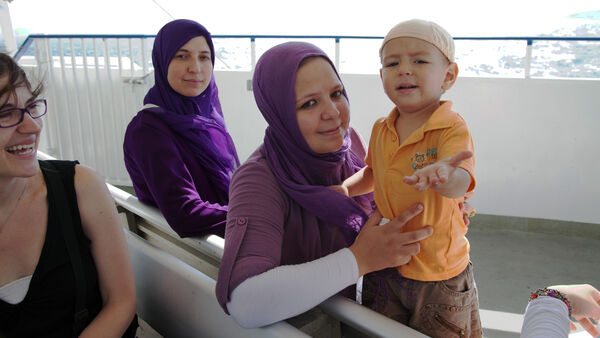The American Dream, Bulgarian Dream, Sri Lankan Dream: Celebrate Them All

Previous:
I fondly remember the confusion I felt when I first met someone who wouldn't trade passports with me. I thought, "I've got more wealth, more freedom, more opportunity than you'll ever have — why wouldn't you want what I've got?" I assumed anyone with half a brain would aspire to the American Dream. But the vast majority of non-Americans don't. They have the Bulgarian Dream, or the Sri Lankan Dream, or the Moroccan Dream. Thanks to travel, this no longer surprises me. In fact, I celebrate it.
I was raised thinking the world is a pyramid with us on top and everybody else trying to get there. Well into my adulthood, I actually believed that if another country didn't understand that they should want to be like us, we had every right to go in and elect a government for them that did.
While I once unknowingly cheered on cultural imperialism, travel has taught me that one of the ugliest things one nation can do is write another nation's textbooks. Back in the Cold War, I had a Bulgarian friend who attended an English-language high school in Sofia. I read his Soviet-produced textbooks, which were more concerned about ideology than teaching. He learned about "economics" with no mention of Adam Smith. And I've seen what happens when the US funds the publishing of textbooks in places such as El Salvador and Nicaragua, with ideological strings attached. The economics of a banana republic are taught in a way that glorifies multinational corporation tactics and vilifies heroes of popular indigenous movements. I think most Americans would be appalled if we knew how many textbooks we're writing in the developing world.
On the road, you learn that ethnic underdogs everywhere are waging valiant but seemingly hopeless struggles. When assessing their tactics, I remind myself that every year on this planet many languages go extinct. That means that many heroic, irreplaceable little nations finally lose their struggle and die. There are no headlines — they just get weaker and weaker until that last person who speaks that language dies, and so does one little bit ethnic diversity on our planet.
I was raised so proud of Nathan Hale and Patrick Henry and Ethan Allen — patriotic heroes of America's Revolutionary War who wished they had more than one life to give for their country. Having traveled, I've learned that Patrick Henrys and Nathan Hales are a dime a dozen on this planet — each country has their own version.
I believe the US tends to underestimate the spine of other nations. It's comforting to think we can simply "shock-and-awe" our enemies into compliance. This is not only untrue…it's dangerous. Sure, we have the mightiest military in the world. But we don't have a monopoly on bravery or grit. In fact, in some ways, we might be less feisty than hardscrabble, emerging nations that feel they have to scratch and claw for their very survival.
We're comfortable, secure, beyond our revolutionary stage…and well into our Redcoat stage. Regardless of our strength and our righteousness, as long as we have a foreign policy stance that requires a military presence in 130 countries, we will be confronting determined adversaries. We must choose our battles carefully. Travel can help us understand that our potential enemies are not cut-and-run mercenaries, but people with spine motivated by passions and beliefs we didn't even know existed, much less understand.
Growing up in the US, I was told over and over how smart, generous, and free we were. Travel has taught me that the vast majority of humanity is raised with a different view of America. Travelers have a priceless opportunity to see our country through the eyes of other people. I still have the American Dream. But I also respect and celebrate other dreams.
Next:

